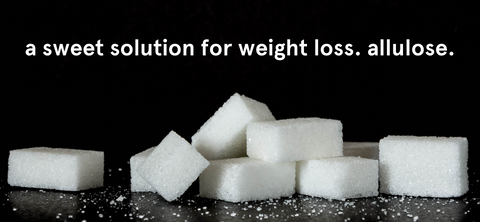
These days, it seems like almost a weekly occurrence that we hear of a catastrophic natural event somewhere on our planet. Whether it’s dangerous landslides, devastating tsunamis, fires, earthquakes, floods, or contaminated water, the planet is struggling, and we as humans are struggling with it. In this modern age, it’s time every individual began doing their part to reduce waste by shifting a few daily practices.
We can’t realistically ask everyone to stop flying, driving, and eating meat — although if we all did all of those things, the earth would recover much more quickly. But short of these extreme moves, how can you live more sustainably? There is a lot that you as an individual can do to have an impact. Here are some simple suggestions to consider:
- Compost: There’s really no reason for food waste to wind up in landfills. Many large cities offer this service, and your only job would be to participate. But if your city or town doesn’t offer it, look into this simple vermiculture setup, which can help you get started composting at home without all the potentially gross sides of composting. Consider going in on it with a few neighbors if you have the space.
- Recycle: It’s most important to recycle aluminum cans and unsoiled paper and cardboard. Understand what types of plastic are recyclable and which ones aren’t and properly separate your plastics to ensure they are actually recycled.
- Store Food Properly: If you buy produce in bulk and don’t plan to use it right away freeze it so it doesn’t go bad before you use it. By buying items with longer shelf lives you give yourself more time to use products before they expire. Reducing food waste can reduce your overall carbon footprint.
- Drive less (walk, bike or take the bus): If your commute is too far to walk or bike a few days a week, try carpooling, rideshare or public transit to reduce your impact. It doesn’t have to be every day, just start somewhere.
- Start an herb garden: Even if you’re in an apartment, it’s possible to start a small window or tower garden. By growing even a small amount of food at home, you reduce your grocery needs. Fresh herbs are healthier than dried and require no plastic to ship/store, and no fuel to ship.
- Use a rain barrel to water your gardens or lawn: This tip is especially important in places with drought risk like California, but it’s great advice for everyone. A bonus is that your plants will respond to rainwater better than treated water from the tap.
- Eat a plant-based diet: This doesn’t mean going 100% vegetarian tomorrow. Start small by focusing on one day a week to go vegetarian. Meatless Mondays are a popular one.
- Join a CSA: Most places have some sort of produce box you can join. It’s a great way to support small organic farms and diversify your diet. You might get an ingredient that inspires a whole new recipe!
- Shop local: This one is for reducing the carbon footprint of the things you buy and supporting local businesses too. By shopping locally, you’ll know that the products you’re getting didn’t come from halfway across the world on a jet-fueled airplane.
- Get a low-flow showerhead: Doing this is an easy and cost-effective way to reduce your water consumption. It’s easier to do this than to try and take 2-minute showers, although shortening your showers a bit is another great tip.
- Switch to LED lightbulbs: Increasingly, LED or otherwise efficient lighting is required in new construction. There are so many private residences that aren’t subject to these regulations, so opting to make the swap on your own will both save the planet and extend the life of your bulbs, which can keep dollars in your pocketbook too.
- Be mindful of indoor temps: If you can adjust yourself before adjusting the thermostat — use a blanket before the heater; open a window or turn on a fan before cranking up the AC, for example — try it. Sometimes taking a brisk walk is a great way to warm up too, which is good for your health as well.
- Reduce clothing waste: A little-known fact is that “fast fashion” is having an incredibly detrimental impact on the planet. Even if you take your clothes to a thrift store to be reused, oftentimes, the unwanted apparent gets loaded up and shipped out to third world countries, adding to transportation pollution, and local pollution for them. Buy good clothes from reputable, eco-conscious brands, and try to repair damages before tossing them. High-end brands like Patagonia strive to extend the life of their clothing by offering free repairs.
- Get a smarter thermostat: Smart thermostats have been shown to reduce heating and cooling costs by up to 10-15%. That’s not just savings for your carbon footprint, that’s savings for your wallet.
- Switch to renewables: While you may not be able to get solar panels on your house/apartment, there are companies out there like Inspire Energy that will leverage renewable energy for your home without you needing to do any installation at all.
- Use cold water for laundry: Almost all of the energy from washing your clothes is from heating the water. A simple change to using cold water instead of hot could eliminate 1,600 pounds of carbon dioxide a year (savings of about 90%)
- Unplug more often: It can be hard to do, but if you can choose one or two days a week to choose “analog entertainment,” like reading a book, playing a board game with friends, or taking a long walk outdoors, you’ll be reducing your electricity usage that much more. Maybe pair days like this with your vegetarian days as a way to practice holding yourself accountable.
- Freeze your leftovers: Composting isn’t the only way to reduce your food waste. By freezing things you can actually prolong their useful lifetime, have great ingredients for smoothies, sauces, soups & stocks, and create less waste (not to mention you’ll save money on groceries).
- Buy used/vintage: Furniture is actually a huge waste issue. We are used to buying cheaper, lower quality items, and using them until we move or until the break. Often even trying to do the right thing is complicated and expensive. But buying (or renting) vintage furniture is a great way to keep it out of the landfill and get some high-quality features into your space.
- Subscribe for routine purchases: It’s easy to go on one-click shopping sprees whenever you realize you need something, and then leverage 2-day shipping or overnight shipping to get it right away. But this massively increases fuel consumption & shipping material use. By subscribing to the things you always get, more economic shipping methods can be used (not to mention you’ll never be surprised to find yourself out of something critical).
- Change up your lawn care: Synthetic nitrogen for fertilizers alone has a serious natural gas requirement. Using natural fertilizers, ground covers and practicing more holistic lawn care can save water, prevent chemical runoff, and reduce energy use.
Here at Soylent, we’ve gone green in our shipping methods, and we keep the planet front and center across all of our farming and manufacturing practices. Now it's time for some action from you. Changing behavior of any kind takes time, commitment, and accountability. This is true whether you’re talking about ways to green up your life or ways to change your diet or exercise habits. Start with one or two things on this list to master, then go from there. You’ll be doing yourself and the planet a bit of good.







